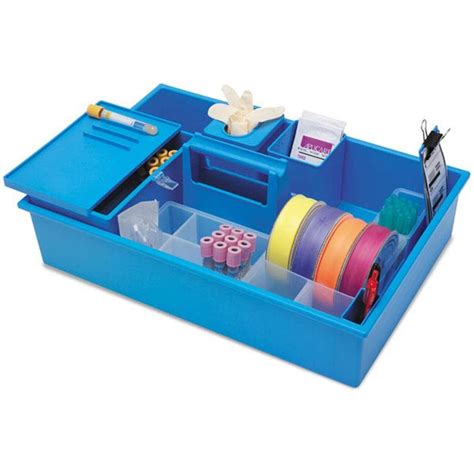Where Can a Phlebotomist Work? Top Careers and Job Opportunities Explained
If you’re considering a career as a phlebotomist or are curious about where thes skilled professionals find employment, you’ve come to the right place. Phlebotomists play a vital role in healthcare by drawing blood samples for testing, donation, and research. Their expertise is in high demand across a variety of settings. In this thorough guide, we’ll explore the top workplaces for phlebotomists, career paths, benefits, practical tips, and real-life case studies to help you understand the breadth of opportunities available in this promising field.
Introduction
Becoming a phlebotomist opens up a world of job opportunities in diverse healthcare and community settings. The demand for skilled blood collection professionals continues to grow due to advances in medical diagnostics,increasing healthcare access,and the expanding role of laboratory testing. Whether you’re just starting your healthcare career or looking to specialize further, understanding where phlebotomists can work is crucial for making informed career decisions. Let’s dive into the top employment settings and explore why this profession offers not only rewarding work but also promising job stability and growth.
Top Career Settings for Phlebotomists
1. Hospitals and Medical Centers
Major hospitals and medical centers are among the primary employers for phlebotomists. In these environments, phlebotomists are responsible for collecting samples from patients with varied health conditions, including emergency cases. Working in hospitals offers the chance to learn from experienced healthcare professionals and handle a wide range of medical situations.
2. Diagnostic Laboratories
Many phlebotomists work in specialized diagnostic labs,processing samples for tests that help diagnose diseases,monitor health conditions,and guide treatment plans.This setting is ideal for those interested in the analytical side of blood collection and laboratory procedures.
3.Blood Donation Centers
Organizations like the American Red Cross and local blood banks employ phlebotomists to collect blood donations from healthy volunteers. This role is essential for maintaining an adequate blood supply for hospitals and emergency needs and offers flexible working hours.
4. Outpatient Clinics and Physician Offices
Primary care clinics, specialist offices, and outpatient clinics often hire phlebotomists to perform routine blood draws. Working here allows for more patient interaction and frequently enough a calmer habitat compared to hospitals.
5. Research Institutions & universities
Research facilities training in clinical studies and biomedical research rely on phlebotomists to assist in sample collection for various scientific projects. This setting can be particularly appealing for those interested in medical research careers.
6. Mobile Phlebotomy Services
Some phlebotomists work in mobile clinics, providing blood collection services at patients’ homes or workplaces. This option offers flexibility and the chance to serve underserved communities, especially the elderly or those with mobility issues.
Other Work Environments for Phlebotomists
| Work Environment | 特徴 |
|---|---|
| Hospitals & Medical Centers | Fast-paced, diverse cases, team environment |
| Diagnostic Labs | Focus on processing and testing samples |
| blood Banks & Donation Centers | Community service focus, flexible hours |
| Clinics & Physician Offices | Patient interaction, routine procedures |
| Research Facilities | Scientific, academic environment |
| Home & Mobile Services | Community-focused, flexible scheduling |
Benefits of Working as a Phlebotomist
- Job Stability: Growing demand for healthcare services ensures consistent job opportunities.
- Entry-Level Pleasant: Requires minimal formal education, with on-the-job training or certification programs readily available.
- Flexible Schedule: Opportunities for part-time, full-time, or shift work, especially in donation centers and mobile services.
- Career Advancement: Pathways to roles such as medical assistants, laboratory technologists, or healthcare managers.
- Fulfilling Work: Directly contributing to patient health and aiding in life-saving procedures.
Practical Tips for Aspiring phlebotomists
- Get Certified: While requirements vary by state, certification from organizations like the American society for Clinical Pathology (ASCP) can boost job prospects.
- Develop Soft Skills: Strong interaction, empathy, and attention to detail are vital for patient care and accurate blood collection.
- Gain experience: Volunteer or seek internships to build hands-on skills and confidence.
- Stay Informed: keep up with healthcare regulations and best practices to maintain certification and professionalism.
Case Study: From Certification to a Rewarding Career
Julia, a certified phlebotomist, started her career working at a community blood donation center. Over the years, she gained valuable experience, pursued additional certifications, and eventually transitioned to working in a hospital laboratory. Her journey highlights how a solid foundation in phlebotomy can open doors to diverse healthcare roles, providing job stability and personal fulfillment.
conclusion
As you can see, a career as a phlebotomist offers a wide variety of work environments, each with its unique challenges and rewards. Whether you prefer the dynamic atmosphere of hospitals, the community-oriented setting of blood donation centers, or the scientific environment of research labs, there are ample opportunities to build a fulfilling career in this field. With proper certification, soft skills, and a passion for patient care, you can find a rewarding role that fits your lifestyle and career goals. The demand for skilled phlebotomists continues to grow,making now an excellent time to pursue this essential healthcare profession.
If you’re interested in starting or advancing your journey as a phlebotomist, explore accredited certification programs, gain experience, and stay committed to delivering excellent patient care. Your skills not only save lives but also open doors to diverse and thriving career opportunities in healthcare.
